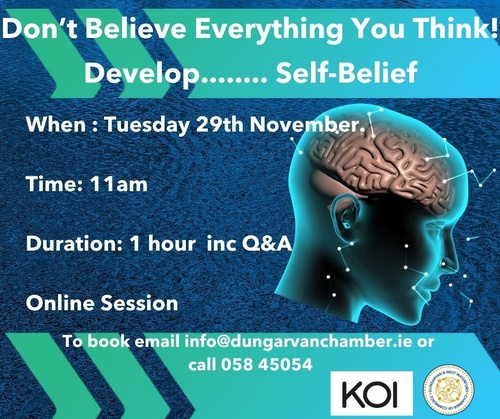Develop a Mindset for Confidence and Self-Belief
Imposter Syndrome was first recognized as a behavioural pattern by psychologists Pauline Rose Clance and Suzanne Imes in 1978. It describes someone who underestimates their values, skills and accomplishments, who feels they aren't as capable as others believe them to be and fear they'll be ‘found out’ and exposed as a fraud.
If you have ever experienced this, you are not alone. Research by the International Journal of Behavioural Science revealed that more than 70% of people are affected by workplace imposter thoughts at some point in their lives.
How we think impacts how we feel and ultimately the actions we take.
Imposter Syndrome was first recognized as a behavioural pattern by psychologists Pauline Rose Clance and Suzanne Imes in 1978. It describes someone who underestimates their values, skills and accomplishments, who feels they aren't as capable as others believe them to be and fear they'll be ‘found out’ and exposed as a fraud.
If you have ever experienced this, you are not alone. Research by the International Journal of Behavioural Science revealed that more than 70% of people are affected by workplace imposter thoughts at some point in their lives.
How we think impacts how we feel and ultimately the actions we take.
What you will learn on this programme:
- In this 60-minute collaborative on-line session we will explore what Imposter Syndrome is, the factors that perpetuate it and approaches to developing a mindset for confidence and self-belief.

Date and Time
Tuesday Nov 29, 2022
11:00 AM - 12:00 PM GMT
1 hour inc Q&A
Location
Online Event
Fees/Admission
Free event

